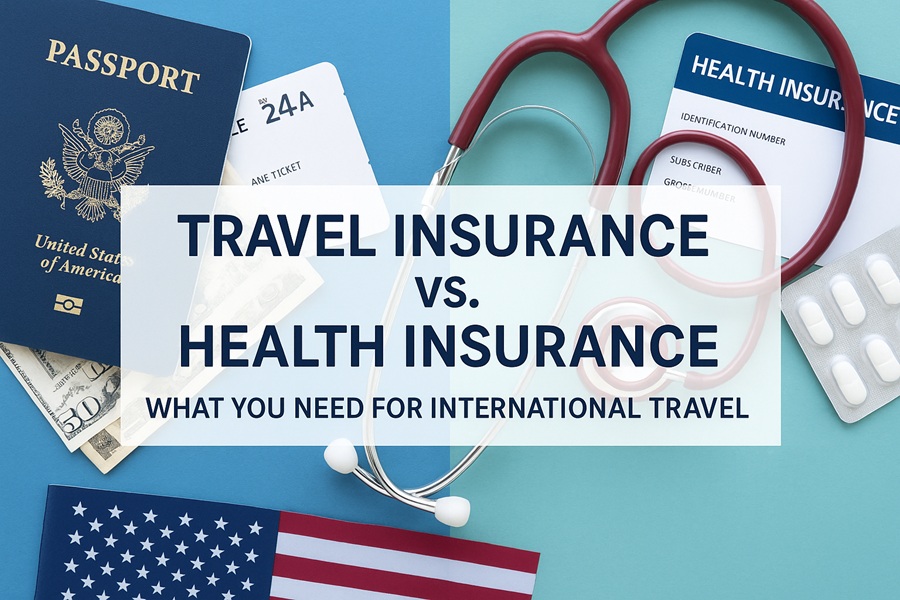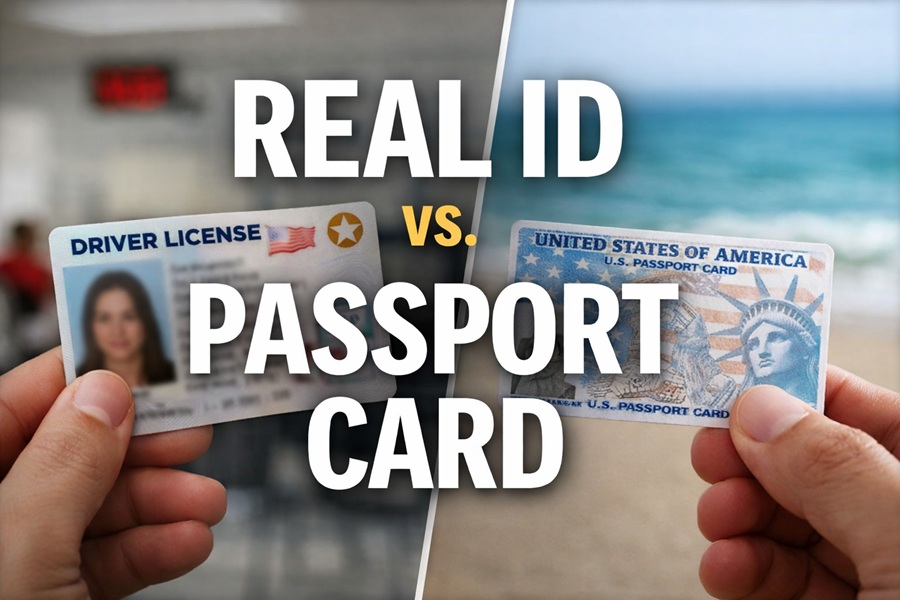This article clarifies the differences between travel insurance and health insurance, explains why both matter when traveling internationally, and helps you determine which coverage is right for your trip.
When planning a trip abroad, most travelers focus on flights, hotels, and sightseeing. Unfortunately, one of the most critical considerations - how you'll handle unexpected medical issues overseas - often gets overlooked. Many Americans assume their standard health insurance automatically provides full coverage abroad. In reality, this is rarely the case.
Does Your U.S. Health Insurance Cover You Abroad?
Most domestic health insurance plans - including Medicare - offer limited or no coverage outside of the United States. Even if your policy covers emergency treatment abroad, reimbursement can be partial and may exclude:
- Routine medical visits
- Prescription refills
- Specialized care
- Medical evacuation or repatriation
Some premium insurance plans or employer-provided policies include broader international benefits. However, these typically require you to pay upfront for treatment and file a claim later for reimbursement - often with complex documentation.
What Is Travel Insurance?
Travel insurance is a specialized policy designed to protect travelers financially in the event of unexpected trip disruptions. While coverage varies, most policies include:
- Trip cancellation or interruption due to illness, injury, or other covered reasons
- Lost or delayed baggage
- Emergency medical expenses abroad
- Medical evacuation if you need to be transported to a hospital or returned to the United States
Unlike standard health insurance, travel insurance is temporary, purchased specifically for the duration of your trip.
Why Medical Coverage Matters When Traveling Internationally
Medical costs can be significant outside the U.S. In some destinations, hospitals require proof of ability to pay or even payment upfront before providing treatment. This can create major challenges during emergencies.
- Average cost of emergency medical evacuation: $15,000–$200,000, depending on location and distance to a capable hospital.
- Routine treatment costs: Even basic emergency room visits can cost thousands of dollars.
Travel insurance ensures you won’t face crippling medical bills or struggle to access care when you need it most.
How Travel Insurance Complements Health Insurance
Here’s how these two types of coverage work together:
- Primary Health Insurance: May cover certain international services but usually with limited benefits and complex claims processing.
- Travel Insurance: Fills in gaps by covering out-of-network costs, emergency transportation, and non-medical issues (like lost luggage).
Some travelers also purchase specialized international health plans if they plan to stay abroad for an extended period (e.g., digital nomads, retirees, or students).
Key Features to Look for in Travel Insurance
When selecting a travel insurance policy, pay close attention to:
- Medical coverage limits: Aim for at least $100,000 in emergency medical coverage.
- Medical evacuation coverage: Essential for remote or underdeveloped regions.
- Pre-existing condition waivers: Ensure coverage for chronic health issues.
- 24/7 assistance hotline: Quick support in emergencies.
- Trip cancellation and interruption: Helps recover prepaid, non-refundable costs.
Frequently Asked Questions
Q: Does Medicare cover me overseas?
A: No. Medicare generally does not cover treatment outside the U.S., except in limited circumstances near the U.S. border or on certain cruises.
Q: If I have premium health insurance, do I still need travel insurance?
A: Yes. Even with strong health coverage, travel insurance provides essential benefits like medical evacuation, trip protection, and baggage loss coverage.
Q: Can I buy travel insurance after booking my trip?
A: Yes, but it’s best to purchase soon after booking to ensure maximum coverage, including trip cancellation protection.
Q: Does travel insurance cover COVID-19?
A: Many policies now include coverage for COVID-related medical expenses and trip cancellations, but terms vary by provider.
Final Thoughts
Traveling internationally without understanding your insurance coverage can expose you to significant financial risk. Standard U.S. health insurance usually provides minimal protection abroad. A comprehensive travel insurance policy can bridge these gaps, covering medical care, emergency evacuation, and unexpected trip disruptions.
Before your next trip, review your existing health coverage, identify what’s missing, and consider purchasing travel insurance for peace of mind. With proper planning, you can explore the world knowing you’re protected in case of emergencies.


